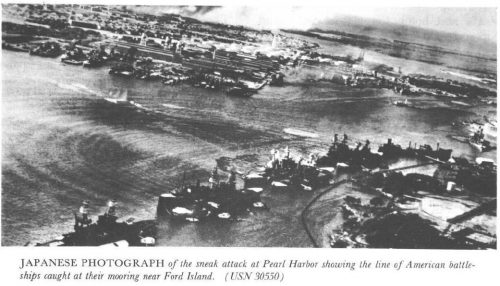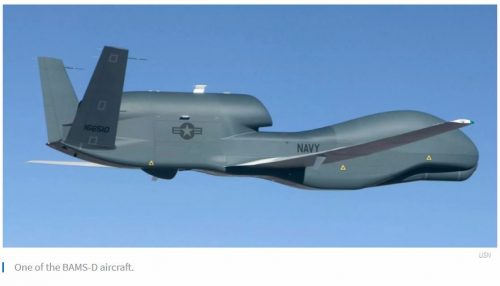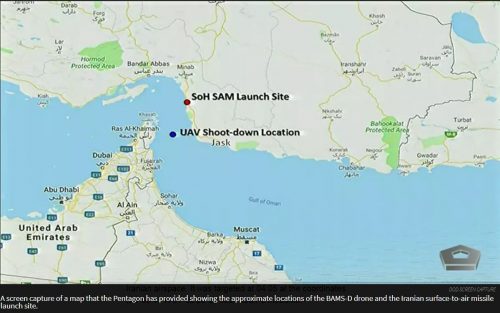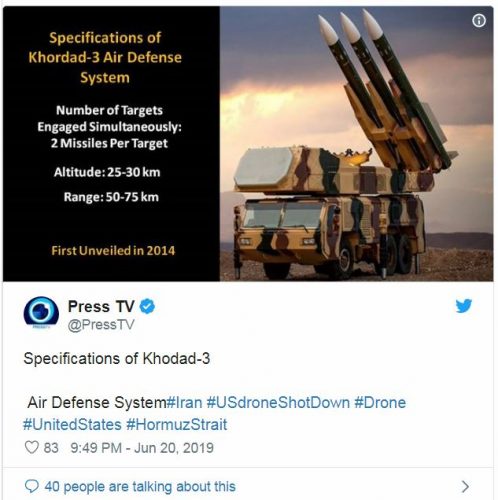We are not a serious country because, as a democracy, we do not have serious voters. Autocracies like China and Russia have many disadvantages compared to us, but in the present historical moment, they are nowhere near as stupid as we are. One trembles for the future.
Korea
Movie Review: Devotion
Jesse Brown, a black man, became a US Navy pilot in 1946. As one might expect at that time, he faced plenty of race-based obstacles in addition to the inherent difficulties involved in becoming a Naval Aviator. Nevertheless, he prevailed, and flew a Corsair piston-engined fighter from the carrier Leyte, in missions to support US ground troops in the Korean War. On one mission, supporting Marines at the battle of Chosin Reservoir as a member of the VF-32 squadron, he was shot down in rugged terrain. His (white) wingman, Thomas Hudner, observed that Brown had not exited the airplane–which was starting to burn–and landed his Corsair near Brown’s wrecked one with the intent of getting Brown out of the plane and waiting with him until a rescue helicopter could (hopefully) be dispatched before Chinese or North Korean troops showed up.
Oh, and by the way, while Leyte was in the Mediterranean, prior to being dispatched to Korea, several of the aviators met actress Elizabeth Taylor while on shore leave.
Definitely sounds like fiction, doesn’t it? But it really happened. While the film indeed took some liberties with the historical truth, the events cited in the above summary are in accord with the factual history.
Race does play a significant role in this movie, of course…since his childhood, Brown had maintained a notebook in which he recorded the various race-based insults he had received over time, especially those telling him all the things he would never have the ability to do. Sometimes he would recite these as a way of giving himself extra inspiration for high performance. But I don’t think the racial angle was overemphasized, given the era and Brown’s apparent actual experiences.
The flying scenes were well-done…real airplanes, not CGI…an actual MiG-15 even made an appearance. (The scene in which a MiG is shot down by a Corsair did not actually happen on this mission, but there was historically an engagement in which a Corsair did manage to shoot down a MiG.) The movie also includes scenes of the ground combat at Chosin Reservoir.
Despite Hudner’s effort, Brown could not be pulled from the wrecked airplane, and died there. He was awarded the Distinguished Flying Cross, the Purple Heart medal, and the Air Medal. Tom Hudner received the Medal of Honor from President Truman. The frigate Jesse L Brown, FF-1089, was named after Brown in 1973, and an Arleigh Burke-class guided missile destroyer was named after Hudner in 2012.
The movie draws on the book Devotion by Adam Makos, which I haven’t read but apparently goes into considerable detail on the Chosin Revenue ground battle as well as the stories of Brown and Hudner and the experiences of other VF-32 members.
Recommended. I thought it was better than Top Gun: Maverick. A little slower, but more sense of realism and character development.
In the Field
Sometimes, long after first reading a book or watching a movie and enjoying it very much, I have come back to re-reading or watching, and then wondering what I had ever seen in that in the first place. So it was with the original M*A*S*H book and especially with the movie. I originally read the book in college and thought, “Eww, funny but gross and obscene, with their awful practical jokes and nonexistent sexual morals.” Then I re-read after having been in the military myself for a couple of years, and thought, “Yep, my people!”
The movie went through pretty much the same evolution with me, all but one element and that was when I began honestly wondering why the ostensible heroes had such a hate on for Major Burns and the nurse Major Houlihan. Why did those two deserve such awful, disrespectful treatment? In the movie they seemed competent and agreeable enough initially. In the book it was clear that Major Burns was an incompetent surgeon with delusions of adequacy, and that Major Houlihan was Regular Army; that being the sole reason for the animus. But upon second viewing of the movie, it seemed like Duke Forrest, Hawkeye Pierce and Trapper John McIntyre were just bullying assholes selecting a random target for abuse for the amusement of the audience.
The Forgotten and Buried Intelligence Lessons of Pearl Harbor, December 7th 1941
December 7th 2019 is the 78th anniversary of the Imperial Japanese Navy’s surprise Pearl Harbor attack on the capitol ship battle line of the US Pacific Fleet. After that attack there was a round of American elite political and military leaders a collective swearing of “Never Again.” That is, “Never again will the USA be so surprised by a foreign enemy.”

Yet despite that, America has indeed been “surprised” in exactly the way of Pearl Harbor repeatedly since 1941. The Korean war is one example five years after WW2 ended. The Soviet Invasions of both Czechoslovakia and Afghanistan in 1968 and 1979 are two others It was certainly an intelligence surprise on 9/11/2001 with the attacks on the World Trade Center in NY City and the Pentagon in Washington D.C., and the “surprise” of there being few/no Weapons of Mass destruction in post 2003 Iraq, and Iran’s recent drone and cruise missile attack on Saudi Arabian oil refining facilities.
The reason for this pattern of failure boils down to the forgotten and unlearned — frankly impossible for American elites to learn — intelligence lessons of Pearl Harbor. Those unlearned lessons being that the interlocking patron-client political relations inside the American federal civil government, military and intelligence organizations lead to narrow self-interested group think over the concerns of outside reality. And that this tendency towards self-interested group think is at its absolute worse when facing a foreign enemy with a police state internal security system that is running a campaign of strategic deception and denial.
If that “worst case” foreign enemy sounds a lot like Imperial Japan, the People’s Republic of North Korea, China, the Soviet Union, Iraq and Iran. It means you have paid attention to both American history since Pearl Harbor and to current events.
Iran’s RQ-4N Shoot Down, Pres. Trump and the Expiration of the Carter Doctrine
It’s become something of a regular occurrence for the American mainstream media to blow a foreign policy story because of their Trump Derangement Syndrome. Yet they seem to have greatly sunk to new lows in missing the real importance of events leading to the 19 June 2019 Iranian shoot down of an American drone.

President Trump has ended the 1980 Carter Doctrine!
The free flow of oil from the Persian Gulf is no longer a “Vital Interest,” thanks to frac’ing, for a near energy independent USA.
BACKGROUND
CENTCOM confirmed Last Wednesday night of 19 June 2019, in international air space over the Strait of Hormuz, an Iranian surface to air missile (SAM) battery shot down a US Navy RQ-4N BAMS-D (Broad Area Maritime Surveillance-Demonstrator) Global Hawk. The ~$120 million drone in question was a navalised version of the USAF Global Hawk, used as proof of concept for the production MQ-4C Triton. It was essentially an unarmed, jet powered, sail plane with the wing span of a 737 jet liner and several tons of sensors. The drone fills the mission of the U-2, at similar altitudes, without the risks of a human pilot in the event of a shoot down.

Iran has claimed it used it’s ‘Third of Khordad‘ domestically built SAM system, operated by the IRGC, to shoot down the drone. This SAM system is described as a copy or derivative of the Russian Buk M3 / SA-17 GRIZZLY that incorporates the Bavar 373 missile that, in turn, appears to be a derivative/copy of the Soviet 5V55/SA-10B with additional controls. If you think of it as a late model Raytheon MIM-23 Hawk medium-range surface-to-air missile battery firing an early version of the MIM-104 Patriot PAC 1 missile, you would not be far wrong.

It was this lack of a human pilot, either as a death or a prisoner of war, that saw President Trump jump off Iran’s scripted “escalation ladder.” Instead of destroying a SAM battery and converting 150 odd IRGC missile operators into another “Martyr blood sacrifice” for the Mullah regime to celebrate. Pres. Trump responded with cyber-attacks on Iranian missile control systems to remind the Mullah’s of the West’s technological “Black Magic” and additional economic sanctions that will cause further payroll cuts to both the IRGC and it’s over seas terror networks. (Truth be told, the new economic sanctions threaten the Mullah’s power far more than any set of tit for tat military strikes.)
And in a move treated as an afterthought, if the MSM mentioned it at all, President Trump ended an era in American Middle Eastern Foreign Policy.
END OF AN ERA
It has been almost 39 & 1/2 years — 10 years before the Cold War ended — that President Carter pronounced access to Mid-East oil a “Vital Interest” that the United States would go to war to protect.
Our two wars in Iraq both have that date, and that policy, as their starting point.
Now that era is over.
Last week Pres. Trump forged a completely new Middle East Foreign policy for America. Specifically, Pres. Trump took the opportunity Iran’s military escalations leading to the shooting down of the RQ-4N to end the January 23, 1980 “Carter Doctrine” expressed as follows —
“…An attempt by any outside force to gain control of the Persian Gulf region will be regarded as an assault on the vital interests of the United States of America, and such an assault will be repelled by any means necessary, including military force.”
This is how Vandana Hari at the Nikkei Asian Review put it:
Asia has most to lose if Middle East turmoil hits oil supplies
As US-Iran tensions, can crude importers defend their interests?
JUNE 21, 2019 14:21 JST
https://asia.nikkei.com/Opinion/Asia-has-most-to-lose-if-Middle-East-turmoil-hits-oil-supplies
“U.S. President Donald Trump says he might take military action against Iran to prevent it from acquiring a nuclear weapon. But he has indicated he won’t necessarily jump in to protect international oil supplies from the Middle East if they are under threat from the Islamic Republic.
.
The position, articulated by Trump in an interview with Time magazine on June 17, should not come as a surprise, even if it appears to be at odds with the Pentagon beefing up aircraft carriers and troops in the Middle East in recent weeks, citing a threat from Iran.
.
As Trump spelt out in the interview, the U.S. is no longer as dependent on oil from the Middle East as it was, thanks to burgeoning domestic production.
.
Air Force General Paul Selva, vice chairman of the U.S. Joint Chiefs of Staff, emphasized the message a day later, pointing out that China, Indonesia, Japan and South Korea were heavily dependent on supplies moving through the Strait of Hormuz, and needed to protect their interests. U.S. Secretary of State Mike Pompeo has made similar comments.”
The pronouncement above was the full “Bell, Book and Candle” exorcism of American foreign policy — President, Joint Chiefs of Staff and Secretary of State. And please carefully note that it happened two days before the RQ-4N was destroyed.
.
While “freedom of navigation” on the high seas over all and the Persian Gulf in particular remains a “major interest” of the United State of America. It is no longer one which America will automatically go to war over.
.
In ending the Carter Doctrine, President Trump has fulfilled his 2016 campaign promise of “No More Iraq’s.”
.
By changing the cost benefit calculations of Middle-Eastern oil — no more free riding on American protection of Persian Gulf Sea lanes — the only way a nation can “win” internationally now is by “getting close” to the American hyperpower.
.
“HA-HA-HA-HA-HA-HA-HA-HA-HA-HA-HA-HA-HA-HA-HA-HA-HA-HA-HA!
.
That’s a good one!
.
“You all need to defend YOUR oil shipments through those NASTY Straits of Hormuz. The U.S. don’t need that filthy Middle East blood-oil no more. In fact, if you don’t want to spend the money and lives pounding sand in Iraq, Kuwait and Iran, we have some FINE Texas frackin’ goodness to sell at a SPECIAL price, just for YOU, our friends and allies for SO many years!”
.
Snicker, choke, GASP….”
The American Left has finally gotten what it always wanted…no more “Blood for Oil“ in the Middle East.
Somehow, I don’t think President Trump delivering that reality to them will make them very happy.
-End-